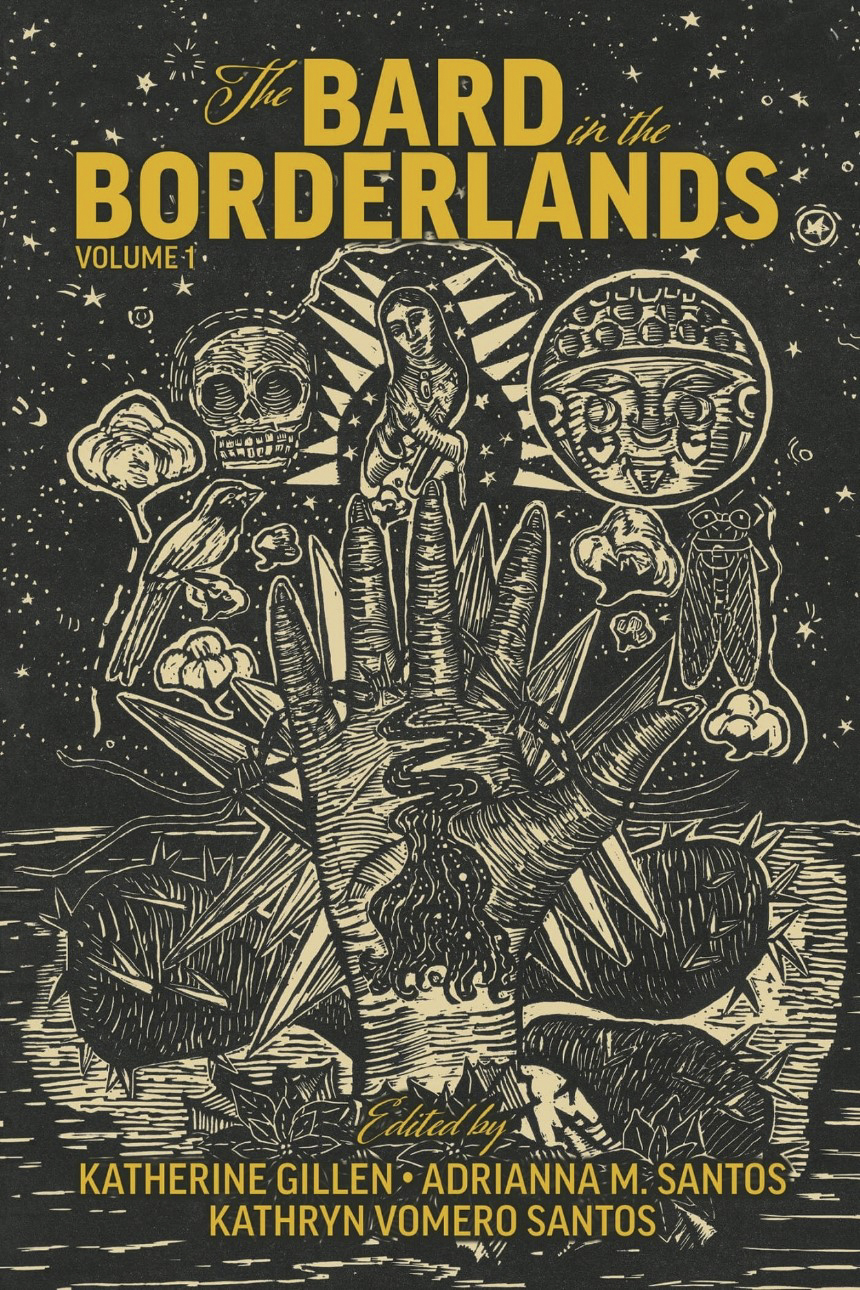University Receives Prestigious Mellon Grant for Borderlands Shakespeare Project


Wednesday, 01 25 2023
 A&M-SA awarded $500,000 to support U.S.-Mexico border-based project about Shakespeare appropriations
A&M-SA awarded $500,000 to support U.S.-Mexico border-based project about Shakespeare appropriations
SAN ANTONIO — Texas A&M University-San Antonio (A&M-SA) has been awarded a $500,000 grant from the Mellon Foundation, the nation’s largest funder of the arts, culture and humanities, through its Higher Learning Program. This grant is A&M-SA's first Mellon Foundation grant and the largest humanities grant received by the institution to date. A&M-SA Associate Professor and Chair of the Department of Language, Literature, and Arts Dr. Katherine Gillen and A&M-SA Associate Professor Dr. Adrianna M. Santos, in collaboration with Trinity University Assistant Professor Dr. Kathryn Vomero Santos, received the grant in support of the Borderlands Shakespeare Colectiva (BSC).
On January 24, the Mellon Foundation announced more than $12 million in funding to support 26 colleges and universities across the nation mounting social justice-related research or curricular projects. The grants are the result of Mellon’s Higher Learning inaugural open call – announced in spring 2022 as a means of continuing to support inquiry into issues of vital social, cultural and historical importance. A&M-SA received the award based on one of three distinct topical categories as part of the proposal process, “Social Justice and the Literary Imagination.”
The BSC consists of a group of scholars, educators, artists and activists who engage with Shakespeare in ways that reflect the realities of the U.S.–Mexico borderlands. According to the BSC founders, Chicanx and Indigenous theater-makers have been repurposing Shakespeare’s plays in recent decades to portray the lived experiences of communities in La Frontera – a Spanish term referring to the U.S.-Mexico borderlands – and to reflect the region’s multilayered history.
“Playwrights have been adapting Shakespeare in exciting ways that are relevant to our borderlands region,” said Dr. Gillen. “They use the stories of Macbeth, Hamlet and Romeo and Juliet, for example, to explore complex questions of identity, language and politics. These multilingual plays have truly resonated with our A&M-SA students. In many ways, this project is inspired by their insights and enthusiasm.”
There has been an increase in demand for culturally responsive and bilingual pedagogical resources in South Texas, where these types of adaptations and appropriations are common and speak to local conditions, but the texts of the plays have not been easily accessible or available for classroom use.
For this reason, the BSC has centered its work on 12 previously unpublished plays compiled in the professors’ forthcoming open-access anthology, The Bard in the Borderlands: An Anthology of Shakespeare Appropriations en La Frontera. The anthology, which will be published by the Arizona Center for Medieval and Renaissance Studies (ACMRS) Press, brings a wide range of Borderlands Shakespeare plays together for the first time in a two-volume edition and is poised to transform the way Shakespeare is performed, taught and interpreted by future generations. In addition to making these plays widely available, the editors have provided introductions offering cultural context, performance history, and interpretive frameworks. The Mellon grant will help support the production of the second volume, among other aspects of the project including a digital performance archive, a journal issue on Shakespeare and borderlands culture, opportunities for early career scholars, and resources to help instructors incorporate Borderlands Shakespeare plays into their courses.
As a Hispanic-Serving Institution (HSI) and Seal of Excelencia-certified University with a 77% Hispanic student population, A&M-SA’s Department of Language, Literature, and Arts is an ideal institution to house the project. A&M-SA’s collaboration with Trinity University, a liberal arts institution and emerging HSI with a history of supporting robust humanistic initiatives, will help to bring equitable educational opportunities to the region.
“I am thrilled to be continuing this cross-institutional partnership between Trinity University and Texas A&M University-San Antonio,” said Dr. Kathryn Vomero Santos, who also co-directs Trinity’s Humanities Collective. “Our project builds on our institutions’ shared commitments to fostering research in the region and to supporting the public humanities in San Antonio and beyond.”
Ultimately, the project is designed to help strengthen connections between educators, with their wealth of pedagogical expertise, and community organizations focused on Latinx and Indigenous arts and culture.
“We have several long-term goals, which include creating leadership opportunities for emerging scholars from borderlands communities; enhancing collaborations that support borderlands art and research; and fostering new approaches to teaching Shakespeare in culturally sustaining ways,” explained Dr. Adrianna M. Santos.
Using decolonial and community-accountable approaches, BSC amplifies the world-making power of the border region’s languages, traditions, and ways of knowing. The project directors aim not only to change the way Shakespeare is taught and performed, but also to promote the socially just futures envisioned in the art of La Frontera.
The seeds of the Colectiva were planted in 2018, when Drs. Gillen and Santos organized the first Latinx Shakespeare Symposium at A&M-SA. Dr. Kathryn Santos was invited to present her scholarship after previously organizing a successful gathering on similar topics when she was a professor at A&M-Corpus Christi. Since then, the BSC has held several events and workshops as well as a Roundtable on Decolonial Shakespeare and has appeared on the Latin@ Stories podcast. The BSC has generated 10 scholarly essays as well as several short, public-facing pieces about Borderlands Shakespeare. The BSC is currently focused on organizing their upcoming conference, “Adapting, Translating, and Performing Shakespeare in the U.S.–Mexico Borderlands.” Co-sponsored by ACMRS and supported by both the Mellon Foundation and the National Endowment for the Humanities, the conference will be held in San Antonio in May 2024.
###
About Texas A&M University-San Antonio
Established as a stand-alone university in 2009, Texas A&M University-San Antonio is a comprehensive four-year public university that reflects the culturally diverse, heritage-rich community it serves. Situated on nearly 700 acres in South San Antonio, the University offers 37 undergraduate degrees and 19 graduate degrees to more than 7,300 students. A&M-San Antonio is home to the Henry G. Cisneros Institute for Emerging Leaders and the Cyber Engineering Technology/Cyber Security Research Center. The University holds the Hispanic-Serving Institution (HSI) designation and is one of only 30 higher education institutions in the U.S. to have received the Seal of Excelencia certification from Excelencia in Education for its support of Latino student success. More than 77 percent of A&M-SA students identify as Hispanic, and approximately 60 percent are the first in their family to attend college. A&M-San Antonio is a military-embracing institution; in 2020, Military Times ranked the University No. 35 in the nation for “Best for Vets: Colleges.” Visit tamusa.edu for more information. #onamission
